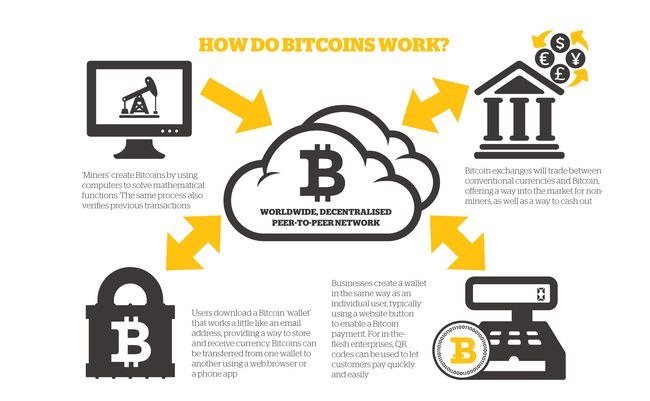科技博客和财经新闻网络对区块链,密码分布式信任技术嗡嗡作响。The key innovation is how itreduces the need for central third-party institutionsto serve as central authorities of trust — banks, courts, large corporations, stock markets and even governments, for example.关键的创新是如何降低中央第三方机构作为信托中央机构的需求 - 例如银行,法院,大型企业,股票市场甚至政府。
Distributed trust enables co-operative forms of organization without a centre.分布式信任使得没有中心的合作形式的组织成为可能。It can distribute power away from centralized institutions to those thattraditionally have less power.它可以把权力从中央机构分配到传统上权力较小的机构。Such powerful institutions do not let go of their influence easily.这样强大的机构不容易放开自己的影响力。
The ongoing debate about how to regulate distributed trust technologiesassumesthat the advocates of the technologies will seek both legal status and enforceability.目前关于如何规范分布式信任技术的辩论假设技术的拥护者将寻求法律地位和可执行性。Scholarsproposethat such developments in distributed trust are a competitive threat to nation-state paper currencies.学者们认为,这种分布式信托的发展是对国家纸币的竞争性威胁。
Much of the current, popular focus is on cryptographic currency — or cryptocurrency — applications such asBitcoin.目前流行的大部分重点是加密货币(或者加密货币),比如比特币。
Bitcoin vs. banks比特币与银行
Regulators are strugglingto deal with a fundamental shift in market structure.监管机构正在努力应对市场结构的根本性转变。National central banks areimplementing policiesto keep control and regulate distributed trust technology.各国央行正在实施控制和管理分布式信托技术的政策。
For example, theChinese governmenthas banned several types of distributed trust activities, and is launching its own non-distributed, centralized digital currency.例如,中国政府已经禁止了几种分散的信托活动,并正在推出自己的非分布式集中数字货币。
The Japanese government has made Bitcoin alegal payment method, and major Japanese banks are planning to launch aJ-Coindigital currency pegged to the Yen whichmay be built on a blockchain.日本政府已经将比特币作为合法的付款方式,日本各大银行正在计划推出与可能在区块链上建立的日元挂钩的J-Coin数字货币。
Russiainitially treated non-approved currency trades as illegal, but is now determining how to regulate them.俄罗斯最初将未经批准的货币交易视为非法,但现在正在决定如何对其进行监管。
Image: Atlanta Tech Village图片:亚特兰大科技村
In fact, traditional centralized, powerful organizations like banks,governments, regulators and technology behemoths are allspending billionsfiguring out how to use and control distributed trust technologies.实际上,像银行,政府,监管机构和技术巨头这样的传统集中,强大的组织都花费数十亿元来计算如何使用和控制分布式信任技术。
But distributed trust technologies havemany usesbeyond cryptocurrency.但分布式信任技术在加密货币之外有许多用途。
Volunteer-driven communities志愿者驱动的社区
Organizational theory has a lot to say about this transition.组织理论对于这种转变有很多要说的。Distributed trust technologies are organized in what we call a Community Form (C-Form) of organization.分布式信任技术按照我们所说的组织形式(C-Form)进行组织。
C-Forms are not new.C表格不是新的。They have been around since the1800swhen the Oxford English Dictionary was created by a distributed community of volunteers.自19世纪以来,“牛津英语词典”由分布式的志愿者社区创建。
The growth of C-Forms was accelerated by technological developments enabling inexpensive peer-to-peer communication.C-Forms的发展因技术发展而加速,从而实现便宜的点对点通信。C-Forms came into focus with the last internet-enabled major organizational shift to distributed information-creation platforms.C-Forms最后成为了互联网主要组织向分布式信息创造平台的转变。
As a result of that innovation, we have seen many forms of information production shift to C-Forms.由于这一创新,我们看到许多形式的信息生产转移到C形式。Open source software such as the Linux computer operating system, which competes with Microsoft Windows and Apple macOS, is produced and shared by individuals in C-Forms instead of centralized software companies.与微软Windows和苹果macOS竞争的Linux计算机操作系统等开放源代码软件由C-Forms中的个人生产和共享,而不是集中式软件公司。Encyclopedias such as Wikipedia are created by individuals in a C-Form instead of a centralized publishing house.维基百科等百科全书是由个人以C形式而不是集中出版社创建的。Video content on Vimeo is produced and shared by individuals in a C-Form instead of centralized studios.Vimeo上的视频内容由C-Form中的个人制作和共享,而不是集中的工作室。
Similarly, distributed trust technologies are shifting the organizational landscape of how trust is produced and managed from centralized institutions to a C-Form.同样,分布式信任技术正在将信任由中央机构生产和管理的组织格局转变为C形式。
The development of distributed trust technologies is having a similar enabling effect on the growth of C-Forms replacing the trust functions of centralized institutions.分布式信任技术的发展,正在取代集中式机构的信任功能,对C-Form的发展也起到类似的促进作用。
Fundamentally, this is a decentralization of power.从根本上说,这是权力下放。
Power shift权力转移
Many of our previous assumptions about formal organization are being challenged by shifts to distributed forms of trust.我们之前关于正规组织的许多假设都受到分散式信任转变的挑战。
Individuals can now enter into direct peer-to-peer trusted exchanges with strangers.个人现在可以与陌生人直接进行点对点的信任交流。They no longer need a central institution to vouch for the other party.他们不再需要中央机构来担保对方。Ablockchain-enabled microgridin Brooklyn is already allowing individuals to sell their excess solar energy directly to neighbours without involving a central utility company.布鲁克林区块链微电网已经允许个人将多余的太阳能直接出售给邻居,而不涉及中央公用事业公司。
This is a drastic shift to many of the underlying assumptions about how markets and society are organized.这是关于如何组织市场和社会的基本假设的一个重大转变。As power centralizes,opportunities emerge.随着权力集中,机会出现。
Many Silicon Valley success stories are simply centralized platforms.许多硅谷的成功案例都是简单的集中式平台。They capitalize on the power and legitimacy ofenabling trusted interactions for others.他们利用为他人实现可信交互的能力和合法性。
Centralization creates new opportunities集中化创造了新的机会
Just as Uber matches riders to drivers, Facebook matches consumers to advertisers.正如Uber匹配车手的司机,Facebook匹配消费者广告商。This centralization of power has created an opportunity for distributed trust.权力的集中为分散的信任创造了机会。
The major platforms stand to lose their power as distributed trust takes hold.随着分布式信任的发展,主要平台将失去其力量。Such powerful organizations will no longer be needed.这样强大的组织将不再需要。
But those in power tend to try to hold onto power.但是执政者往往试图保持权力。
Microsoft faced a challenge to its centralized market power as open-source software C-Forms grew.随着开源软件C-Forms的发展,微软面临着集中市场力量的挑战。The “Halloween Documents” were internal Microsoft communications about responding to the strategic threat of open-source software.“万圣节文件”是微软内部有关应对开源软件战略威胁的通讯。One tactic detailed was “FUD” (fear, uncertainty, and doubt).一个详细的策略是“FUD”(恐惧,不确定和怀疑)。
We are now seeing similar responses to distributed trust technologies.我们现在看到对分布式信任技术的类似回应。
JPMorgan Chase & Co. CEO Jamie Dimon called Bitcoin a “fraud,” andclaimsgovernments are going to close down “crypto things.” He is beingaccusedof market abuse in Sweden by a company called Blockswater.摩根大通(JPMorgan Chase&Co.)首席执行官杰米·戴蒙(Jamie Dimon)称比特币为“欺诈行为”,并声称政府将关闭“加密事物”。他被瑞典一家名为“块水”的公司指责为滥用市场行为。Blockswater alleges he “deliberately spread false and misleading information.”斯莫特沃特宣称他“故意传播虚假和误导性的信息”。
In other words, Dimon is being accused of creating FUD.换句话说,戴蒙被指控创建FUD。
The future of distributed trust分布式信任的未来
We used to assume that large centralized organizations had legitimacy and power.我们曾经假设大型集权组织具有合法性和权力。But that's starting to change.但是,这是开始改变。As distributed trust technologies develop, we will continue to see this power shift.随着分布式信任技术的发展,我们将继续看到这种力量的转变。
We mustquestion the role of centralized organizations in a time of distributed trust.我们必须质疑集中化组织在分散信任时代的作用。The key now is to ensure that we use insights from organizational theory, and sociology, to shape our joint societal future in a world of distributed trust.现在的关键是确保我们使用组织理论和社会学的见解来在分布式信任的世界中塑造我们共同的社会未来。
It's a world where the role of powerful central institutions will be greatly diminished.这是一个强有力的中央机构的作用大大减弱的世界。With such insight, we will be able to design a more equitable future for all.有了这样的见解,我们将能够为所有人设计一个更公平的未来。
原文地址:https://www.weforum.org/agenda/2017/10/bitcoin-is-making-banks-nervous-heres-why?utm_content=buffer284bb&utm_medium=social&utm_source=twitter.com&utm_campaign=buffer
